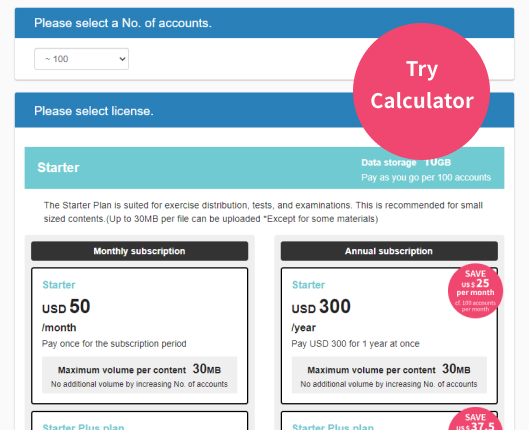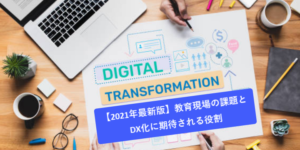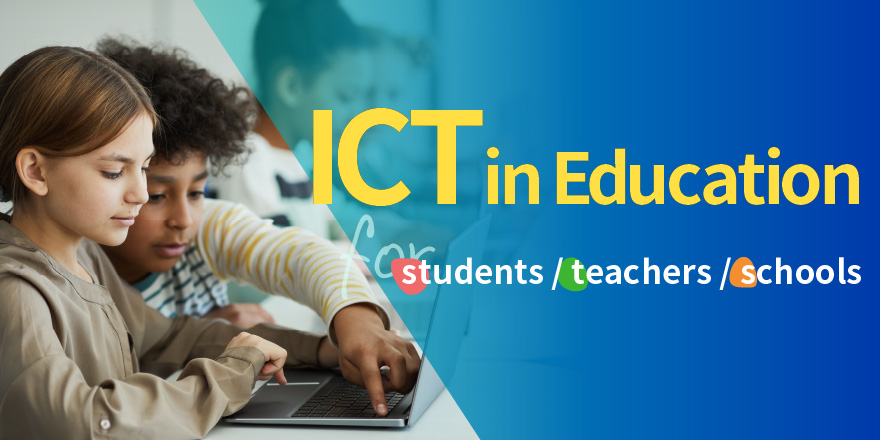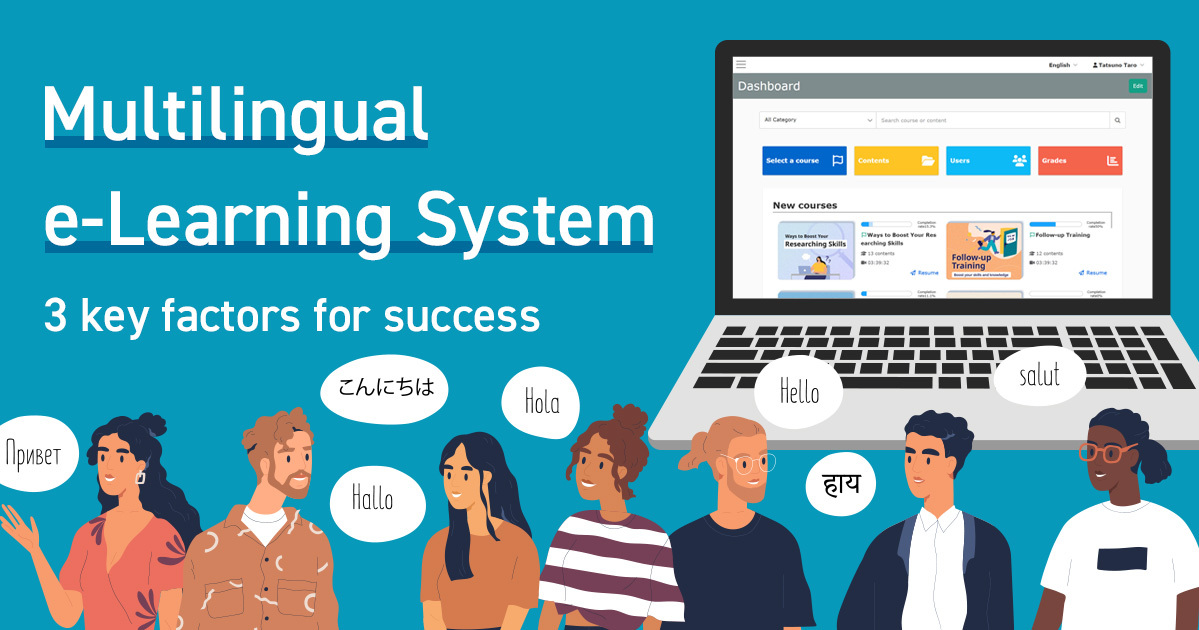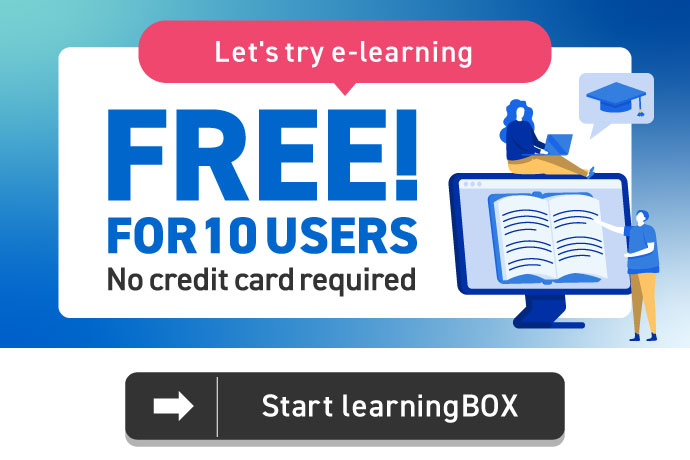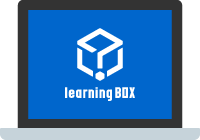The Impact of ICT in Schools
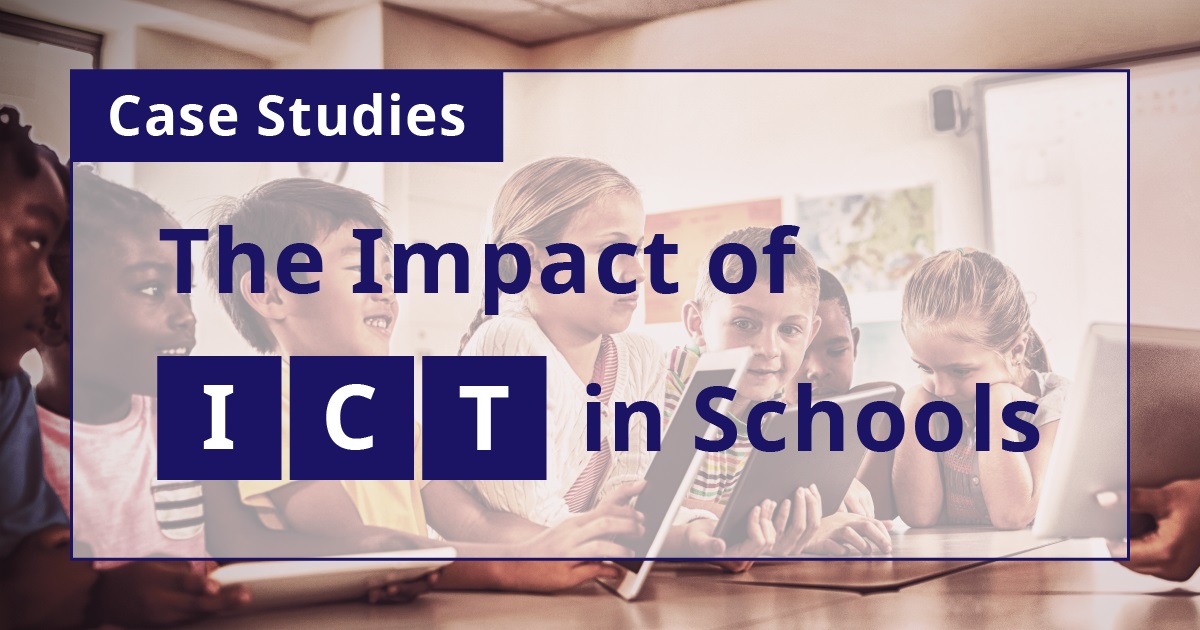
With the advancement of digitization in every sector, ICT has been gathering attention in the field of education as well. There must be needs from educators including cram school managers to promote efficiency through the use of digital technologies.
This article will provide an overview of ICT in education, case studies, and the benefits. If you are interested in promoting digitalization on campus, there will be great tips.
What Is ICT?

ICT stands for Information and Communication Technology.In other words, ICT education indicates educational methods that incorporate information and communication technologies.
In general, ICT in education aligns with the use of digital devices such as computers and tablets as well as software including elearning and video content.
Back to ContentsBackground
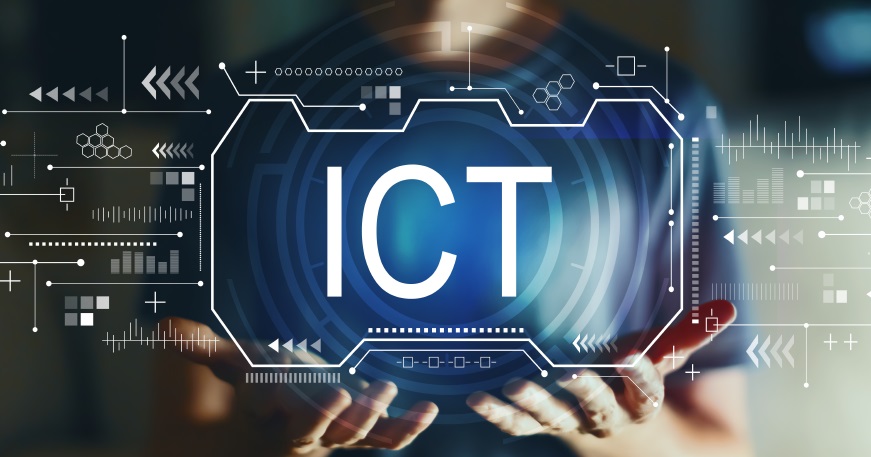
Why is ICT in education spreading? What is the purpose? Some of you may be wondering the reasons when you hear the word.
The following are some of them.
Promotion of Digital Transformation
One of the reasons is to accelerate promotion of digital transformation by the government. In many countries, each government puts it forward as a policy. It aims to enrich our social lives through the evolution of information technology.
While attention is focused on digital transformation, there is also a growing awareness of the need to utilize information technology in the field of education. Furthermore, against the backdrop of restrictions on face-to-face classes due to the spread of the coronavirus from 2020, digitization became a more urgent issue.
Reducing the Burden of Teachers
In the field of education, teachers' diverse range of tasks are immense. In addition to conducting regular classes, they compromise by preparing for other upcoming classes, scoring exams, teachers' meetings, and more.
In the face of these challenges, there is a movement to reduce the burden on teachers by introducing ICT in education. For instance, utilizing video content in class will result in saving time for preparing handouts.
For the Digital Society
In today's digitalized society, computer literacy is becoming an essential part of education for children. In particular, information literacy, the ability to discern and select the needed information from a large amount of it, is indispensable for the future.
In order to acquire basic computer skills, ICT has an important role in education.
Back to ContentsCase Studies

ICT has been utilized in many educational fields. In elementary schools, for example, it has been introduced to many subjects including English, math, social studies, science, and so on.
The following are some case studies.
2nd Grade, English
In the second grade English class at the elementary school, tablet devices are used to encourage students to understand each story more easily. Characters' movement and their facial expressions let them imagine how they feel at the scene.
This attempt led to students' deeper understanding of the stories and higher reading skills as a result. Children tend to more focus on watching videos than just reading textbooks, and you will see how much ICT improves their interest toward the subject.
5th Grade, Foreign Language
In the fifth grade of elementary school, foreign language classes, efforts are being made to increase interest by using teaching materials and digital contents in the language. Incorporating activities and songs using digital devices led to active learning, and motivated students.
This has been effective in improving engagement in activities. For example, digital flashcards make it possible to develop language activities at a good pace, and teachers said that students enjoyed learning more using such content.
6th grade, Home Economics
In sixth grade, home economics class, students are encouraged to deepen their understanding by thinking about the menu while writing on the enlarged images of digital devices.
Sharing the visual information enhances students’ thinking skills from various perspectives. Through making opinions in class, a teacher said that students tried to view the bigger picture of the topics including balance of nutritions.
Reference
Advantages

The introduction of ICT in education is expanding in various fields. What are the advantages?
We explore the four major advantages of its efficiency as below.
Increasing Students’ Level of Understanding
Digital content including video, audio, website, etc. is expected to enhance students' understanding. In addition to textbooks and reference books, a variety of teaching materials will be more effective in attracting their interest.
For example, in a history class, it is important to understand the roles of people down to the detail. Video content allows students to smoothly understand the correlation between people and the background.
This is a great advantage in learning as it helps them materialize using images and audio effects.
Increasing Time to Learn
By introducing ICT in education, students' learning effectiveness will be greatly enhanced. Traditionally, students mainly copy what is written on the blackboard into their notebooks. However, by sharing the content via tablet devices, the time spent on notes can be used for other learning.
Effective Use of Time
While teachers have a variety of tasks, ICT makes it possible to reduce time spent on grading, preparing handouts and so on. This means they can spend more time on other tasks or communicating with their students.
Efficient work will result in higher quality of education itself and building a good relationship with students.
Teaching Materials Sharing
Tablets and smartphones make it easy for teachers to share materials used in class. Not only does this make information sharing smoother, but there will be no need to worry about the loss of handouts.
As for teachers, their best practices will enhance the quality of teaching and accelerate communication among teachers..
Back to ContentsDisadvantages

While there are many advantages to adopting ICT in education, there are also disadvantages.
The following are some examples.
Implementation Cost
In order to introduce ICT in education, implementation cost should be taken into consideration. Digital equipment including laptops or tablet devices will require a certain amount of cost, and there will be a need to install some applications for more effective learning.
Also, make sure that repair and replacement costs will be necessary depending on the situation.
When considering introducing ICT, plan in detail coinciding with your criterias such as the number of students, budget, the effect and so on.
Computer Skills
While ICT in education is highly effective for learning, the introduction could be a hurdle for teachers who are not familiar with computers or who feel insecure about it.
They need to learn how to operate various devices and software regardless of their concerns. In addition, it is required to solve problems by themselves when systems or network troubles happen during a class.
In addition to this, the equipment needs to be managed on a regular basis, which may increase teachers' concern in some cases.
Digital Divide
ICT is highly related to the internet environment. When network access is not available, students cannot learn digital content. To extract the most value from ICT, teachers need to consider the countermeasures in advance and take prompt action so that students can continue learning.
When conducting online classes, special attention should be paid because of the reason written above.
Possibilities to Lower Imagination Skills
It has been pointed out in some quarters that the internet may lower students' imagination skills in that they can easily access the answers without thinking. In addition to computer skills, reasoning skills and creativity play integral roles and these elements will be indispensable for the next normal.
It is also concerned that the use of computers and tablets will reduce the opportunities to write characters.
Back to ContentsSummary
ICT in education is becoming the next normal with the spread of digitalization. Compare the pros and cons when introducing it.
If you want to focus on ICT education in the future, our learning management system, "learningBOX We hope you will consider using the "KIUA" system. Not only is it easy to register teaching materials, but it can also be used to manage groups of students, grades, and other applications.
If you are interested in the effects and efficiency, download the Free brochure.
▼You may also like:
Back to Contents-
Discover rich featuresService Guide
-
Feel free to contact usGet in Touch
-
Try our Free PlanTry Free Plan
